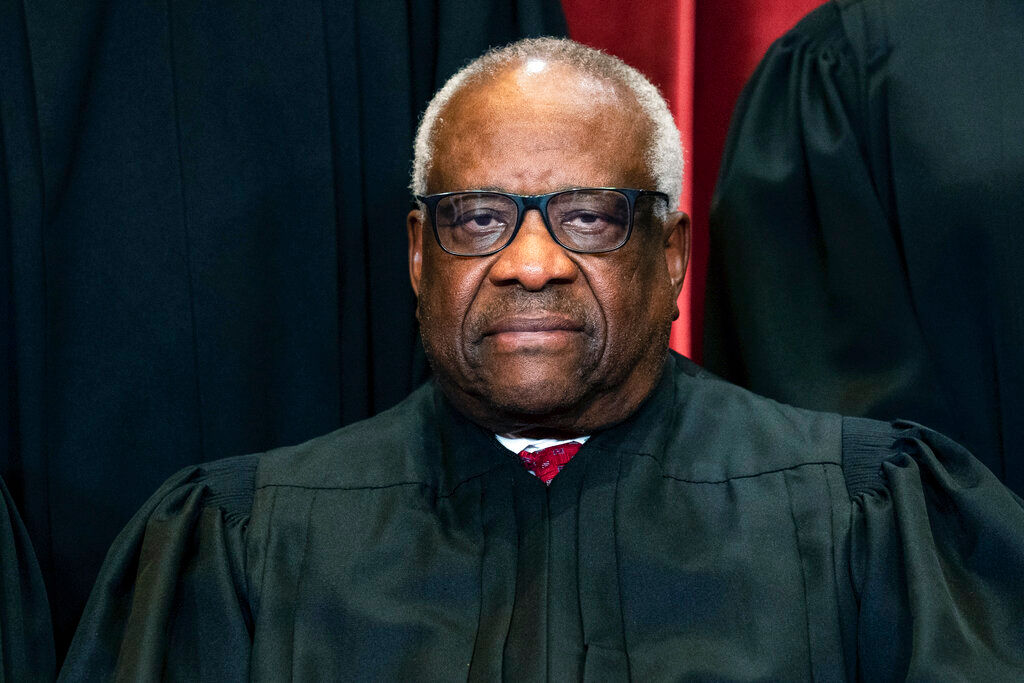The historic 1973 Roe v. Wade verdict, which secured constitutional protection of abortion rights, has been reversed by the United States Supreme Court in what many will regard as the court’s most important decision in a generation.
In Dobbs v. Jackson Women’s Health Organization, the court’s conservative majority declared that their predecessors erred 49 years ago when they determined that a woman’s right to abortion was recognized by the Fourteenth Amendment.
Also read: What Roe v Wade overturning means
The judgement is also a big triumph for Supreme Court Associate Justice Clarence Thomas, who has stated unequivocally that he believes Roe v. Wade should be reversed.
Dobbs v. Jackson, a direct challenge to the court’s precedent, sought the justices to preserve a Mississippi law that prohibits practically all abortions after 15 weeks of pregnancy.
While abortion rights activists may see the ruling as a setback for women’s rights, opponents of abortion can rejoice and praise Thomas for his role to an important legal triumph.
Also read: Joe Biden says ‘sad day’ as Roe v Wade overturned: Key takeaways from address
Thomas is currently the court’s longest-serving member, having been on the bench for nearly 31 years. He is also the only incumbent member of the court who was present at the hearings in Planned Parenthood v. Casey, which was decided in 1992.
In that case, the court decided 5-4 to uphold Roe’s “essential holding,” with three justices nominated by Republican presidents writing the majority judgement.
The opinion was written by Justices Sandra Day O’Connor, Anthony Kennedy, and David Souter, and Justices Harry Blackmun and John Paul Stevens joined it in part but wrote their separate concurring opinions.
Thomas, alongside Chief Justice William Rehnquist and Justices Antonin Scalia and Byron White, joined the minority and dissented. Thomas is the only justice from that era who is still on the bench, the others being retired or passed away.
Also read: A look at 50 years of Supreme Court Roe v Wade and abortion decisions
Since 1992, Thomas has made no secret of his belief that Roe v. Wade was erroneously decided and it should be reversed. In his writings as a justice, he has directly attacked the 1973 court’s reasoning.
In 2020, the Supreme Court struck down a Louisiana statute that critics claimed would effectively close all of the state’s abortion clinics. Thomas wrote a dissent in which he attacked Roe in no uncertain terms.
“Our abortion precedents are grievously wrong and should be overruled,” he wrote. “The idea that the Framers of the Fourteenth Amendment understood the Due Process Clause to protect a right to abortion is farcical.”
The Supreme Court declared 7-2 in Roe that the due process provision of the Fourteenth Amendment safeguarded a woman’s right to abortion.
Thomas calrified in his 2020 dissent: “As the origins of this jurisprudence readily demonstrate, the putative right to abortion is a creation that should be undone.”
“But today’s decision is wrong for a far simpler reason: The Constitution does not constrain the States’ ability to regulate or even prohibit abortion. This Court created the right to abortion based on an amorphous, unwritten right to privacy,” he added.
For decades, Thomas was in the minority on the issue of abortion, but the changing membership of the court under former President Donald Trump’s administration made overturning Roe a serious possibility.
The court now has a 6-3 conservative majority, making Chief Justice John Roberts less powerful.
In some high-profile cases, Roberts, a conservative, has regularly voted with the liberals, resulting in 5-4 verdicts. Roberts’ swing vote is no longer decisive, as there is now a solid block of five conservatives.
The current composition of the court is also owing to a more polarised political climate than existed when Thomas was appointed in 1991.
Following the death of Justice Antonin Scalia, the Republican Senate majority declined to convene hearings for then-President Barack Obama’s nominee, Merrick Garland. As a result, former President Trump was able to select conservative Justice Neil Gorsuch to the position.
Following the death of Justice Ruth Bader Ginsburg, Trump appointed Justices Brett Kavanaugh and Amy Coney Barrett, who were confirmed by the Senate. Her confirmation occurred only a few days before the 2020 presidential election.
These modifications made the court more inclined to overturn Roe, and Thomas’ effect was evident. Mississippi Solicitor General Scott Stewart, a former clerk for Thomas, argued the case for the state.
Stewart encouraged the justices during oral arguments in December to “just go all the way and overrule Roe and Casey.” Thomas and the vast majority of his colleagues have agreed.
The decision’s ultimate outcome and political ramifications for the court yet to be seen, but overturning Roe was a long-term objective for Thomas, who achieved it after more than 30 years.







